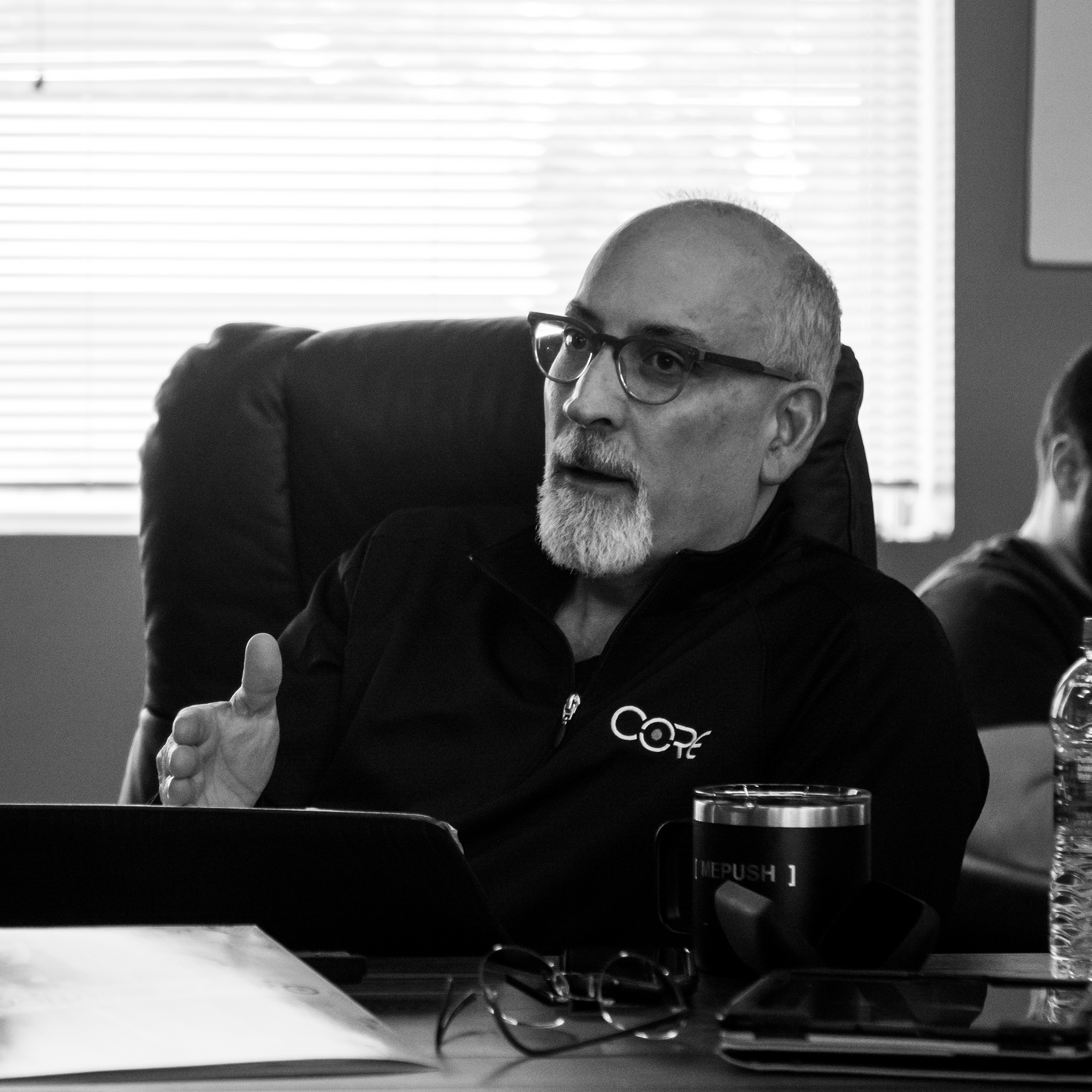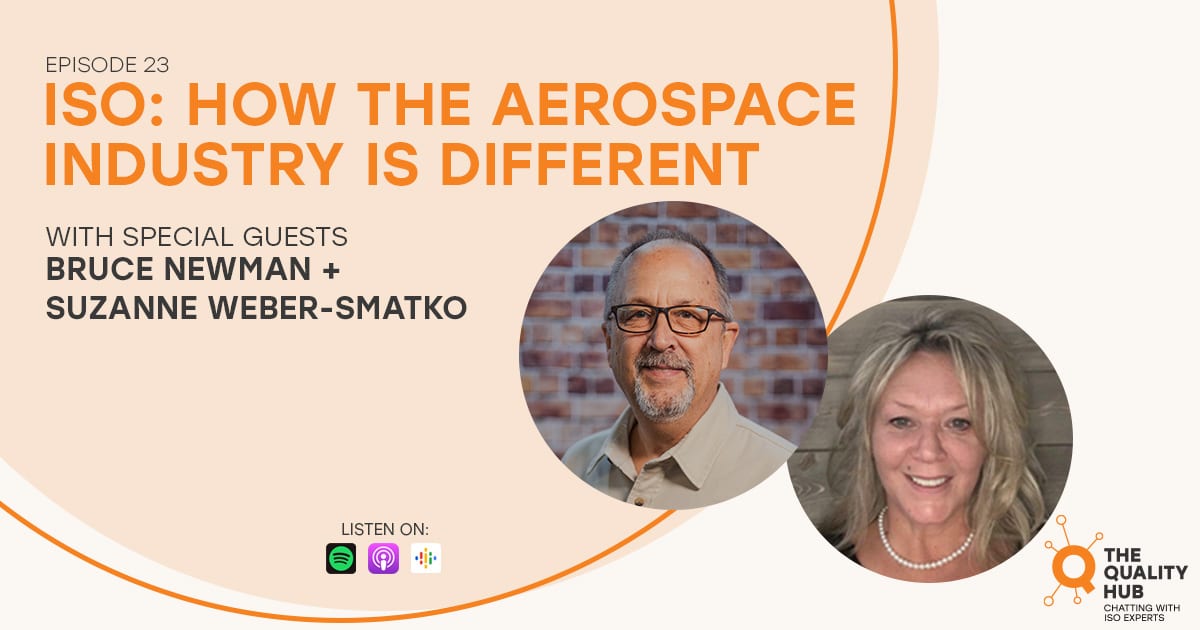AS9100 Clause 7 Explained
What is the AS9100 Clause 7 About?
AS9100 Clause 7 focuses on the realization of aerospace products and services within the quality management system (QMS). This clause outlines requirements related to planning, design and development, product realization, and post-delivery activities.
Here’s an overview of what you might find in Clause 7 of AS9100:
Planning of Product Realization:
This involves establishing processes and resources to ensure that aerospace products and services meet customer requirements and regulatory standards. It includes defining quality objectives, determining product requirements, and planning production processes.
Configuration Management:
AS9100 emphasizes the importance of configuration management to ensure that product configurations meet specified requirements throughout the product lifecycle. This includes controlling changes to product configurations and maintaining accurate configuration records.
Get a Free Quote
Risk Management in Product Realization:
Companies are required to identify and mitigate risks associated with product realization processes, including design, manufacturing, and service delivery. This involves conducting risk assessments, implementing risk controls, and monitoring risk throughout the product lifecycle.
Design and Development Planning:
Companies must establish and maintain plans for design and development activities, including defining design and development inputs, outputs, and review activities. This ensures that aerospace products and services are developed according to customer requirements and regulatory standards.
Design and Development Controls:
AS9100 requires companies to implement controls to ensure that design and development activities are carried out effectively. This includes verifying and validating designs, managing design changes, and ensuring that design outputs meet specified requirements.
Supplier Control:
Companies are responsible for ensuring that suppliers and external providers are capable of supplying products and services that meet specified requirements. This involves evaluating and selecting suppliers, establishing supplier controls, and monitoring supplier performance.
Production and Service Provision:
This involves ensuring that production and service provision processes are carried out under controlled conditions to prevent nonconformities and ensure product quality. It includes defining process requirements, implementing process controls, and monitoring process performance.
Validation of Processes for Production and Service Provision:
Companies must validate production and service provision processes to ensure that they are capable of meeting specified requirements. This may involve conducting process validation activities, such as production trials or service simulations.
Post-Delivery Support:
AS9100 requires companies to provide post-delivery support to ensure that aerospace products and services continue to meet customer requirements after delivery. This may include activities such as warranty support, maintenance, and customer assistance.
Overall, Clause 7 of AS9100 provides requirements and guidance for ensuring that aerospace products and services are realized effectively within the QMS, from planning and design to production, delivery, and post-delivery support.
The AS9100 Clauses:
What are the Differences Between AS9100 Clause 7 and ISO 9001 Clause 7?
AS9100 Clause 7 and ISO 9001 Clause 7 both address the realization of products and services within a quality management system (QMS), but there are differences between the two clauses due to the specific requirements of the aerospace industry addressed by AS9100.
Here are some key differences:
Industry Specificity:
AS9100 is tailored for the aerospace industry, while ISO 9001 is a generic quality management standard applicable to various industries. As a result, AS9100 includes additional requirements and considerations specific to aerospace products and services, such as configuration management, risk management, and supplier control in the context of aerospace manufacturing and maintenance.
Emphasis on Safety and Reliability:
AS9100 places greater emphasis on safety and reliability due to the critical nature of aerospace products and the potential consequences of failure. This is reflected in requirements related to design and development controls, validation of processes, and post-delivery support to ensure that aerospace products meet stringent safety and performance standards.
Regulatory Compliance:
AS9100 incorporates specific regulatory requirements and industry standards relevant to the aerospace sector, such as FAA (Federal Aviation Administration) regulations in the United States or EASA (European Union Aviation Safety Agency) regulations in Europe. Compliance with these regulations is essential for AS9100 certification and is not explicitly addressed in ISO 9001.
Supplier Control:
While both AS9100 and ISO 9001 require organizations to control their suppliers and external providers, AS9100 may have more stringent requirements for supplier evaluation, selection, and monitoring due to the criticality of aerospace supply chains and the need for strict quality assurance.
Product Realization Planning:
AS9100 typically includes more detailed requirements for planning product realization activities, particularly in the areas of design and development planning, production process planning, and validation of processes. These requirements are tailored to the complexity and risk associated with aerospace product realization.
Post-Delivery Support:
AS9100 may include specific requirements for post-delivery support, such as warranty management, maintenance services, and customer assistance, to ensure continued satisfaction and safety of aerospace products throughout their lifecycle. ISO 9001 may have more general requirements related to customer support and satisfaction.
In summary, while AS9100 Clause 7 and ISO 9001 Clause 7 both address the realization of products and services within a QMS, AS9100 includes additional requirements and considerations specific to the aerospace industry, such as safety, reliability, regulatory compliance, and supplier control, reflecting the unique challenges and requirements of aerospace manufacturing and maintenance.
How do Companies Comply with Clause 7 of AS9100?
Companies comply with Clause 7 of AS9100 by implementing robust processes and controls throughout the realization of aerospace products and services within their quality management system (QMS).
Here’s how they typically achieve compliance with AS9100 Clause 7:
Understanding Requirements:
Companies start by thoroughly understanding the requirements outlined in Clause 7 of AS9100. This involves studying the standard, its interpretations, and any supplementary guidance provided by industry organizations or certification bodies.
Planning Product Realization Activities:
Companies establish and maintain plans for product realization activities, including design and development, production, and service provision. These plans define the processes, resources, and controls needed to ensure that aerospace products and services meet customer requirements and regulatory standards.
Implementing Configuration Management:
Companies implement configuration management processes to ensure that product configurations meet specified requirements throughout the product lifecycle. This includes controlling changes to product configurations, maintaining accurate configuration records, and ensuring configuration traceability.
Managing Risks in Product Realization:
Companies identify, assess, and mitigate risks associated with product realization processes, including design, manufacturing, and service delivery. This involves conducting risk assessments, implementing risk controls, and monitoring risk throughout the product lifecycle to prevent nonconformities and ensure product quality.
Design and Development Controls:
Companies implement controls to ensure that design and development activities are carried out effectively. This includes verifying and validating designs, managing design changes, and ensuring that design outputs meet specified requirements.
Supplier Control:
Companies evaluate, select, and monitor suppliers and external providers to ensure that they are capable of supplying products and services that meet specified requirements. This involves establishing supplier controls, conducting supplier audits, and monitoring supplier performance to prevent nonconformities and ensure supply chain integrity.
Ensuring Process Validation:
Companies validate production and service provision processes to ensure that they are capable of meeting specified requirements. This may involve conducting process validation activities, such as production trials or service simulations, to verify process capability and ensure product quality.
Providing Post-Delivery Support:
Companies provide post-delivery support to ensure that aerospace products and services continue to meet customer requirements after delivery. This may include activities such as warranty management, maintenance services, and customer assistance to address any issues or concerns that arise post-delivery.
By following these steps and implementing effective processes and controls, companies can ensure compliance with the requirements of Clause 7 of AS9100 and demonstrate their commitment to delivering high-quality aerospace products and services that meet customer requirements and regulatory standards.
Helpful Resources: AS9100 – AS9102 – How the Aerospace Industry is Different
AS9100 – AS9120 – How the Aerospace Industry is Different
Join us in this engaging podcast episode as host Xavier Francis sits down with ISO experts Suzanne Weber-Smatko and Bruce Newman. Delve into the intricate world of the AS9100 standards, where they unravel the unique attributes of AS9100/9120. Discover how AS 9100/9120’s laser focus on product safety, operational risks, and stringent supplier controls sets it apart in the aerospace sector. Listen Now.
Consulting Support for AS9100
Every year, we help hundreds of small businesses achieve AS9100 certification. Support for AS9100 is available through any of our Consulting Programs As an American business with a story like yours, we know that time is valuable. Our expert consultants are here to take on the difficult, technical aspects of certification so you can focus on your business. They’ll work with you every step of the way until you’re successfully certified. Interested? Get a Free Quote.
In many industries, AS9100 has become a requirement. When landing a big contract, AS9100 certification could make all the difference.

About Core Business Solutions
"Core Business Solutions was started by my brother, Mike Dawson, and myself, true entrepreneurs at heart looking for a better way to make a living and help small businesses improve the quality of the products and services they provide.
The bottom line: we are real people that have developed a team to come along side you to help you grow and succeed."
-- Scott Dawson, President
Related Standards
We provide consulting support for various other standards, as well as support for companies seeking multiple certifications through an Integrated Management System.
ISO 9001
Quality Management Systems
AS9120
Aerospace Distributors
ISO 14001
Environmental Management Systems
ISO 45001
OH&S Management Systems
ISO 9001
AS9120
ISO 14001
ISO 45001
Learn more about AS9100 at our articles page.
Equip Your Business to Meet AS9100 With CORE
At Core Business Solutions, we’re here to equip your company for success in meeting AS9100 requirements. We’ve helped hundreds of small businesses grow and deliver the best solutions to their clients. We provide ISO training services, consulting help, and compliance software to help you get certified and stay certified. We focus on optimizing your processes and helping you implement an ISO-compliant QMS. When you partner with us, you’ll get the tools and help you need for success. For more information on the AS9100 standard, please visit our articles page. You can also call our consulting office at 866-354-0300 or contact us online.


